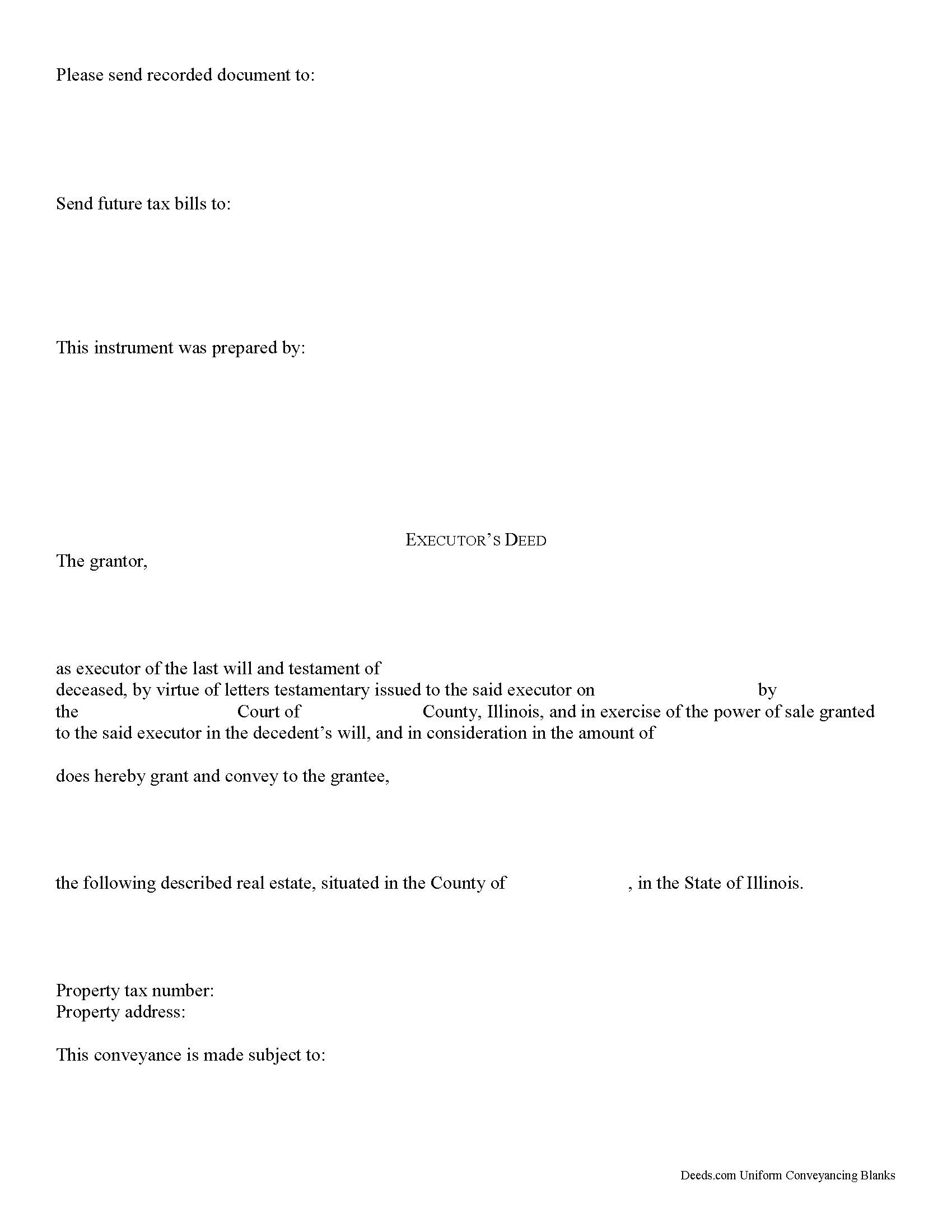Download Illinois Executor Deed Legal Forms

Illinois Executor Deed Overview

Find the laws governing the probate administration of real estate at 755 ILCS 5/20.
The executor of an estate is a person named in the decedent's will to manage the distribution of the estate's assets.
An executor's deed is a special document used by the executor of a decedent's estate to transfer real property out of that estate. This document must meet the same form and content standards as so-called "regular" warranty or quitclaim deeds, and incorporate additional information related to the specific transaction. The details may vary based on the situation, but typically include facts about the decedent and the nature of the probate case. (765 ILCS 5/12)
Depending on the case, the executor might include documents such as letters from the probate court or a certified copy of the death certificate when recording the deed. Consult with the court officer or attorney supervising the distribution to confirm which, if any, supporting documentation might be required. After the deed is executed (signed in front of a notary), confirm it with the court if necessary, then file it in the public records for the Illinois county where the property is located.
This information applies to many, but not all, situations. Contact an attorney or the probate court officer responsible for the case with specific questions.
(Illinois Executor Deed Package includes form, guidelines, and completed example)